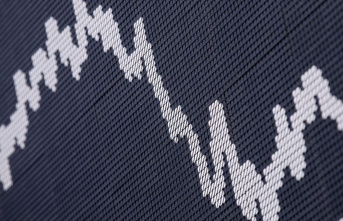The French debt will reach 121 % of GDP this year, an increase of more than 20 points compared to the year 2019 ! But who cares ? In the Face of the economic consequences of the global health crisis, the States are forced to spend almost without count in order to save whole sections of their economy. The priority, therefore, is not at all to the control of the debt, as much as they can count on the unfailing support of the central banks, who keep their interest rates very low despite of the issuance of securities records on the financial markets.
But watch out for the backlash. In a forthcoming study* unveiled by The Point, the iFrap, a think-tank of liberal inspiration, is sounding the alarm about the management of the French debt. Its findings are sometimes well-known : the French debt even before the crisis, was already much higher than that of many of our european neighbours, particularly those in the north of Europe. It is that our country can never go down, even when everything is going well. A trend that flange today the capacity of public authorities to react as strong as Germany in the face of the crisis of the sars coronavirus.
Read also The fantasy of the debt cancellation
The system of the "issue premiums"
But the iFrap is mostly gone off the hood of the management of the French debt. Even before the crisis, the finding is deemed " of special concern ". The foundation criticizes the use of "premium" : to better serve investors, the Agence France Trésor (AFT) re-enables old strains of debt, which offer investors higher interest rates. To be right in a context of very low rates, the latter pay a " premium ", they can offer the money to the French State to go into debt before receiving higher rates. In the end, the operation is neutral.
For the State, this has the advantage of limiting the debt immediately. In 2019, this technique allowed him not to cross the psychological threshold of 100 % debt-to-GDP ratio. On the flip side, it increases its interest expense for the following years and advance the repayment dates of... the criticism of The premium is recurrent, but Agence France Trésor assume : this practice stems from its commitment to provide for the purchase and sale of the debt securities of the French on the financial markets without moving prices too violent. This is what is called guarantee the liquidity on the market, in order to reassure investors of the ability to resell their securities when they wish.
A wall of debt ?
The iFrap is not worried about less of a potential wall of debt in the next few years, based on a report of the Court of accounts of 2019. "By 2030, compared with 76.1% of the marketable debt of the State is due to expire, or 1 to 305 billion euros. It is exactly in eleven years. And by 2023, that 34.9 % of the marketable debt that mature or 599 billion euros. "Money that he will have to re-borrow money, which could prove to be complicated.
Read also economic Crisis : Macron anaesthetist's
Among other concerns, the think-tank also points the weight of inflation-indexed securities, which represent more than 12 % of the French debt. If inflation came back, the rates might go up so much more quickly... The rate of detention of French debt by non-residents is also considered as a weakness. Excluding the ECB, it reached 70 %. But this does not take into account the fact that many titles are held by other central banks, the holding of which is very stable. 'Investors in gold," which would have to absorb, according to a source aware of the dossier, 50% of the emissions (not to mention the ECB).
To limit the risks, the iFrap recommends increasing the average maturity of French debt, from 11.1 years to the part emitted in the medium or long term, by increasing the proportion of the securities in the long term, thirty years and more, as in Germany.
The think tank also recommends that the implementation of a brake to the overall debt for all public administrations (State, social Security, local authorities) once the deficit back under 3 %. Not before several years, so.
* The Fragilities of the management of the French debt, iFrap, June 2020.






